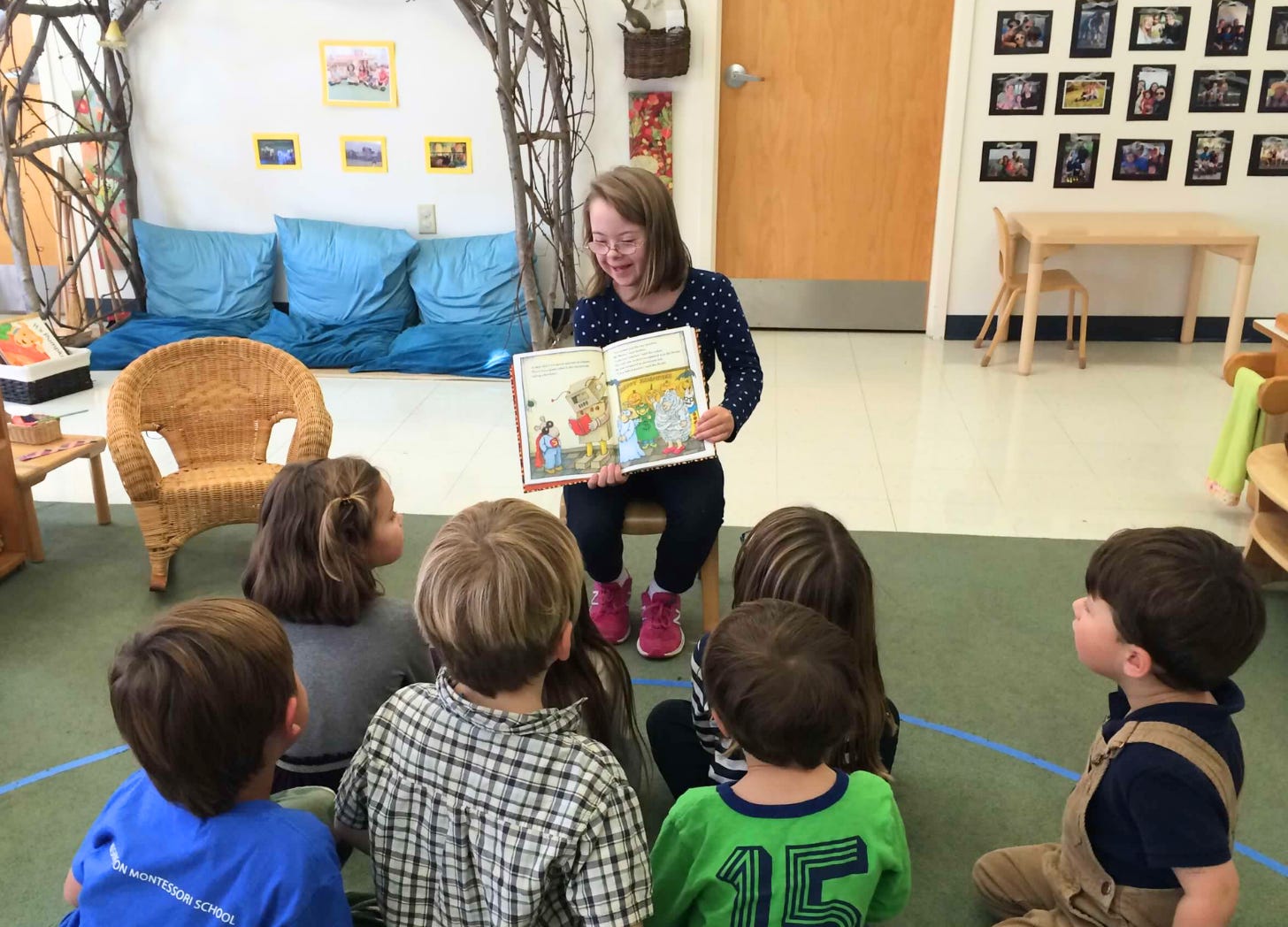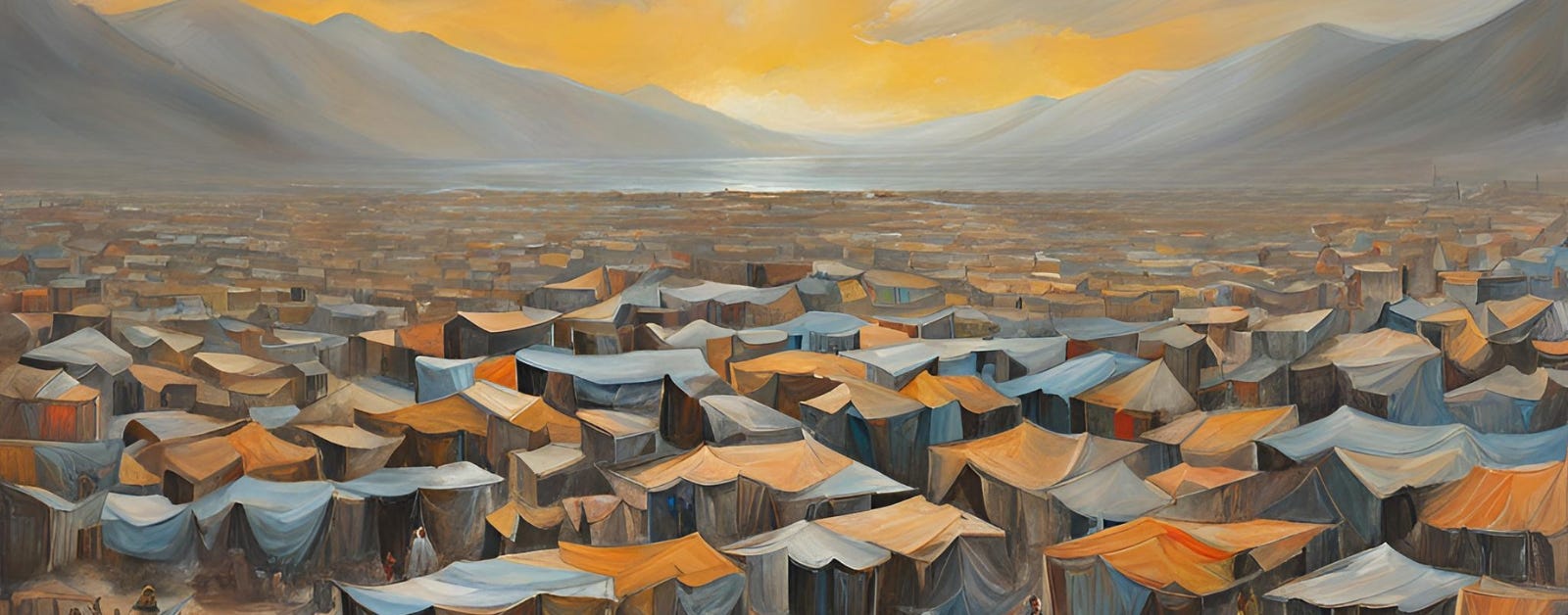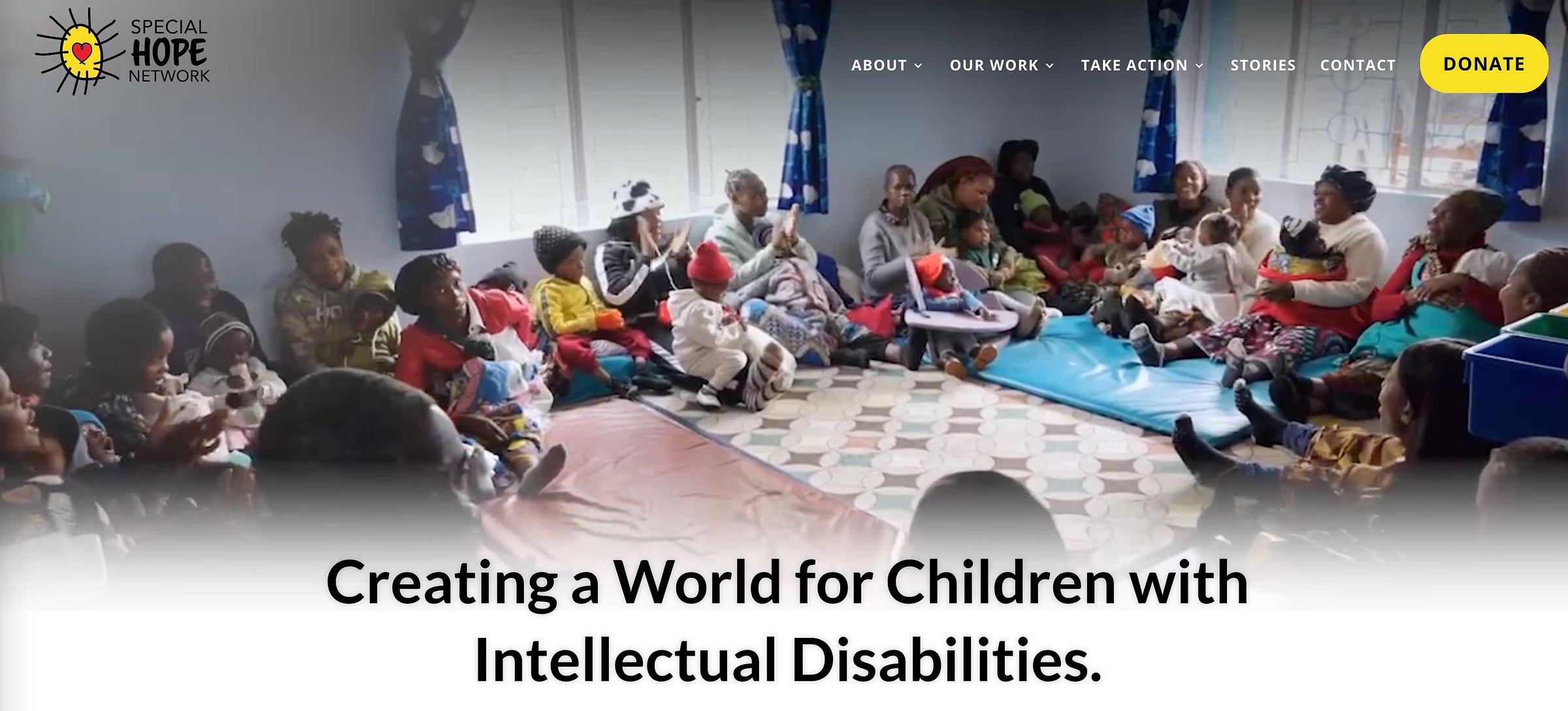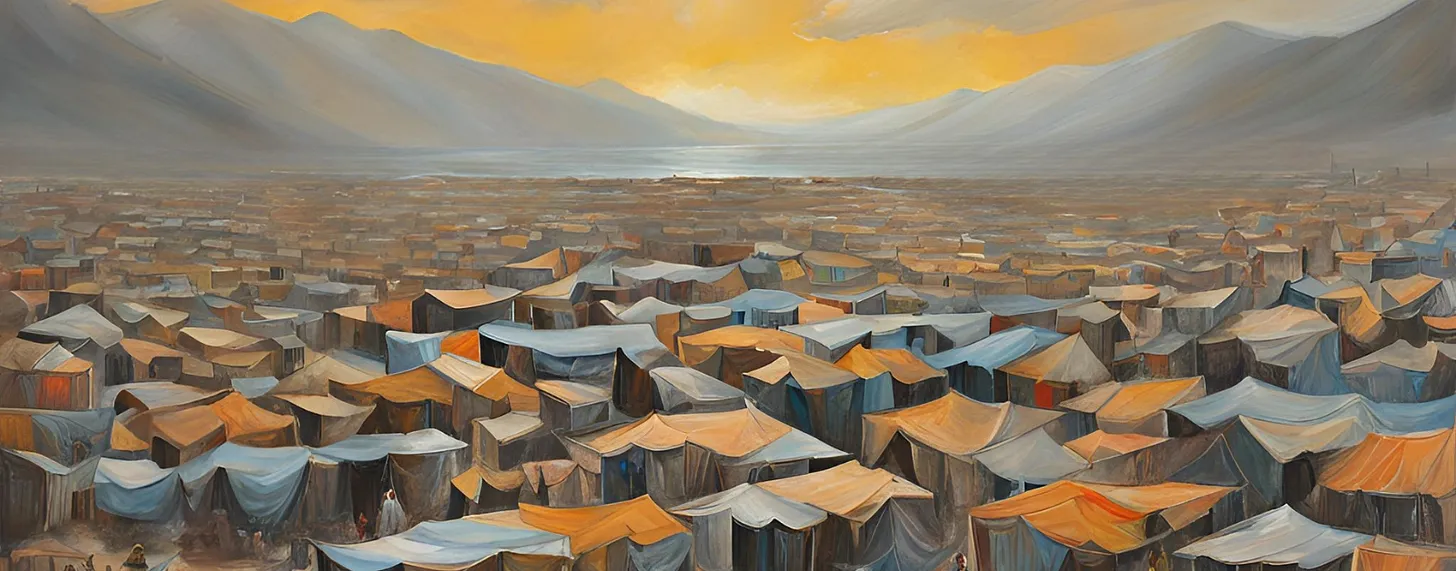Our family relies on the provision of support from the government by way of education and therapies for our daughter Penny. If we were in a more vulnerable financial position, we would also rely on the government for support for her health care. We are grateful recipients of this support. I’m also glad to be a taxpayer who can contribute towards care for valuable and vulnerable members of our community.
Having kids in general has helped us recognize how slow and messy and complicated our lives are, how unproductive and time-consuming it feels to care for other humans. And Penny’s life has also helped us recognize our interdependence, that all of us have needs and gifts. When we offer our gifts in mutual care for one another, our needs can be met in beautiful ways.

Our experience of support and care has helped me see how much vulnerable babies, kids, and adults matter.
The political news of the past few weeks has become personal, because the sudden and comprehensive freeze on USAID spending puts vulnerable kids and adults at immediate risk.

This aid amounts to about one percent of all government spending. It provides food and medicine and clean water, which not only serves our national interest but also demonstrates who and what we value.
What It’s Like on the Ground
Penny’s life has connected us to other people with disabilities around the world, including our friends who lead the Special Hope Network, a non-profit that provides community care centers in Lusaka, Zambia for families with intellectually disabled kids. I reached out to Holly Nelson, co-founder of Special Hope, to ask her how the freeze on USAID spending would affect their work. She wrote back that her biggest concern is for mothers who are HIV positive:
“If moms are HIV positive (often due to a philandering husband they had no idea about), and they can’t get ARVs (antiretroviral medications), we will have children with intellectual disabilities who have nowhere to go for safe living. Extended families don’t want to take them due to their special need. We are opening an emergency foster care home this year, but it is meant to only have 6 children, due to the complicated nature of each different child’s disability and the specificity of the needs of each child. I can’t imagine 180 kids at our Centers with parents not healthy enough to care for their children. We are living a potential nightmare here if this decision is carried forward.”

Holly gives us an inside view of just one city in just one country, but the repercussions extend beyond those kids in that city. Right now, 500 million dollars worth of food is in danger of spoiling rather than going to its intended recipients. Christian missionaries across the world rely on grants through USAID to provide anti-malaria medications and clean water.
Caring for Vulnerable Humans
USAID includes waste and graft that should be corrected. But that waste and graft should be corrected with a scalpel, not a sledgehammer. The sledgehammer is falling on the lives of impoverished and vulnerable people across the globe. And let’s be clear: disabled children are often the most vulnerable in any community. Let’s also be clear that caring for human lives is inefficient. We don’t want the most vulnerable to die in the name of efficiency.
Penny is at greater risk for various diseases, injuries, and abuse than our other kids. She’s more medically and socially vulnerable. And she lives within the comforts of affluent American life, protected with health insurance and education and all sorts of government and community supports.
But kids like Penny who live in communities without those supports have just seen a lifeline removed.
As an American, as a mother, as a Christian who follows the one who told us to care, above all else, for “the least of these,” I am heartbroken at the recklessness and cruelty of such hasty action.
How to Respond When We Feel Hopeless
It’s easy to feel hopeless and powerless in the face of this suffering. But there are ways to respond to this news—and to other decisions our government is enacting right now—that do make a difference:
- Lament.
For people of faith, we are invited to cry out in prayer, to demand that God break through the suffering—to stay engaged with the pain even when we can’t see any way that my words or actions or intentions matter. Lament is an act of engaged protest. Of defiant hope. Of insistence that the “least of these” matter and deserve our care. - Speak up, sometimes.
The best advice I’ve received is NOT to speak up about all the news stories and executive actions and speeches that seem problematic. Rather, speak up about one or two topics that I can devote enough attention to really understand. For me, that means paying particular attention to issues related to disabled kids and families, both in the United States and around the globe. - Have difficult conversations.
Our nation is so polarized, yet most of us still have relationships with people who hold opposing political views. We can chip away at the polarization when we engage opposing views with respect, generosity, curiosity, and a desire to understand, even when we continue to disagree. - Call your senator and representative.
Each of our individual voices helps our representatives know what to argue for on behalf of their constituents. - Respond instead of react.
When we take a moment to wonder about the deeper issues at stake with any news story that inflames our passions, we can respond with grace and hope instead of reacting with anger and fear. - And finally, remember what you are for, not only what you are against.
Pay attention to beauty and goodness and love in this broken world and let that beauty and goodness and love animate your action.
How are you feeling about our current news cycle? What ways have you found to respond? I’d love to hear from you!
MORE WITH AMY JULIA:
- Free Resource: From Exclusion to Belonging
(a free guide to help you identify and create spaces of belonging and welcome) - S8 E10 | The Myth of a Colorblind, Meritocratic Society with David M. Bailey
- Why I don’t want to respond to President Trump’s baseless, inaccurate, and unjust accusations about who caused the plane crash into the Potomac



